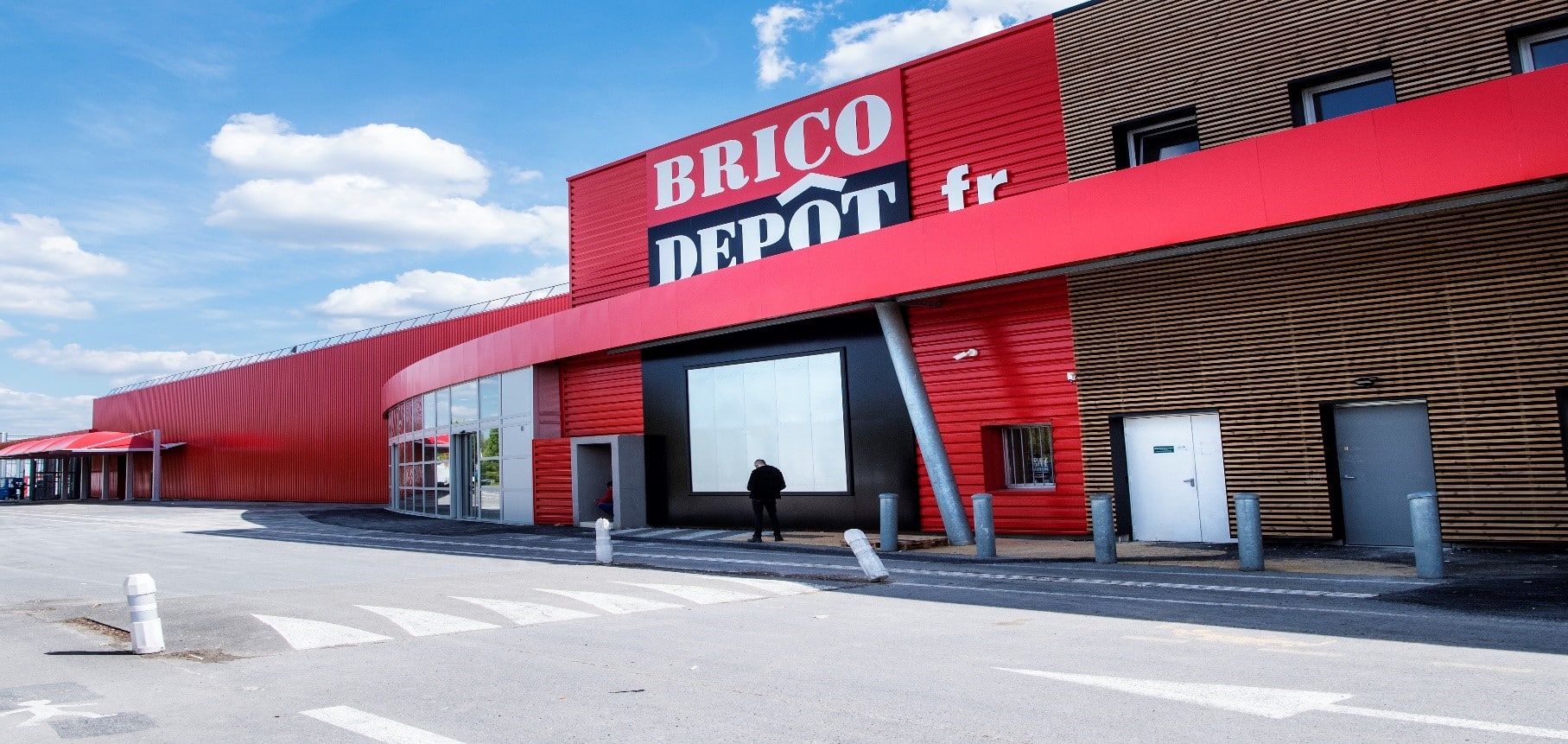
Towards more sustainable homes
In order to decrease the greenhouse gas emissions from the use of its products, Kingfisher works to improve the performance of its ranges.

hrough various actions across its value chain, Kingfisher works to improve the energy efficiency of its buildings and lower the impact of its transports. These actions are part of the company’s roadmap to reduce its absolute scope 1 and 2 greenhouse gas emissions by 37.8% by 2025 compared with a 2016/17 baseline. This target is approved by the Sciences Based Targets initiative, confirming it aligns with a 1,5°C trajectory.
Switching to zero carbon power
We buy electricity from zero carbon sources, supported by Guarantee of Origin certificates. This now covers our operations in the UK, Iberia, Poland, Romania and France – 100% of purchased electricity. We are exploring options to guarantee renewable electricity supplies over the long term such as corporate Power Purchase Agreements. We are also investing in on-site renewable generation. We’ve installed solar PV panels on 29 stores, offices and distribution centres, and have biomass boilers supplying two distribution centres and one head office building. We trialled a PV installation in Poland for the first time in 2021/22 and hope to complete further installations during 2022. Our investments in renewable energy are generating 9.5 million kWh per year and delivering over £1.3 million in financial benefit per year.
Investing in energy efficiency
During 2021/22, we invested £19.6 million in energy efficiency projects including the installation of LED lighting, building energy management systems and insulation and heating improvements. This will reduce consumption by 41 GWh a year, saving 3,800 tonnes of carbon a year and £4.1 million. We have a three-year energy reduction plan for each banner and are making good progress. Key actions include roll-outs of LED lighting and building energy management systems across our estate, energy efficient design blueprints for new stores, and improving building insulation. These actions have reduced our energy intensity by 6.4% since 2016/17. Total energy consumption is now 4.2% lower than in 2016/17.
All electric stores
Our long-term goal is to switch to all electric heating for our stores. This will be key to decarbonising our stores and estate as we switch to 100% renewable power. We have installed all electric heating using air source heat pumps at 102 locations this year. All electric heating using air source heat pumps is now standard specification for new Screwfix stores. Decarbonising heating in larger stores is more challenging and we are exploring potential solutions to address this.
Lower impact transport
We are reducing emissions from our dedicated delivery fleets by switching to more efficient and lower carbon vehicles, training drivers, improving route planning and maximising fill rates. This is essential as transport miles are increasing due to the rise in ecommerce and more click & collect and home deliveries.
B&Q now has 70 HGVs using Liquified Natural Gas (LNG), which can reduce CO2 emissions by 20% compared to diesel. It has invested in a telematics system to monitor driver performance and live route planning that is reducing mileage. In 2022, it will be trialling EV home delivery vehicles and biogas powered trucks with double decker trailers. Screwfix uses iSave, an automated driving system that can improve fuel efficiency by 10%. It has also reduced mileage by redistributing stock between its distribution centres.
on which the project has a significant impact
Scope 1 – Logistics: 70 trucks running on LNG in the UK and a test for home delivery through EVs. + Property : New heating systems and building energy management systems to better manage energy demand in the UK, Poland and France.
The total scope 1 emissions (property gas and other fuels, haulage) increased by 6.8% (+9,772 tCO2e) in 2021/22 since 2016/17 (our baseline). Our scope 1 emissions intensity has reduced by 12% (-1.57 tCO2e/£mill retail sales) since the 2016/17 baseline.
Scope 2 – LED lighting installations + Building energy management systems (BEMS) to better manage energy demand in the UK, Poland and France + Solar PV panels, biomass boilers, and air source heat pump systems
The total market-based scope 2 emissions decreased by 56% since our 2016/17 baseline (-79,214 tCO2e) and 8% (-5,318 tCO2e) against 2020/21.
Annual CO2e savings from new projects installed in 2020/21:
Air source heat pump replacing electric radiant heating, 3 tCO2e
Emissions savings for scope 1 logistics have been calculated using the annual fuel consumption figures (litres/kg) and applying DEFRA/BEIS 2020 GHG conversion factors for company reporting, then comparing against the 2021/22 total for dedicated fleet emissions. Emissions savings for scope 1 property have been calculated using annual kWh savings for heating from project installations in 2021/22 and applying DEFRA/BEIS 2020 GHG conversion factor for natural gas. Emissions savings for scope 2 have been calculated using annual kWh savings for electricity from project installations in 2020/21 and applying location-based emissions factors from DEFRA/BEIS 2020 GHG conversion factors for UK-based parts of the business and the IEA CO2 Emissions from Fuel Combustion 2020 for activities in France, Spain, Portugal and Romania.
In 2021/22, investments in energy saving and renewable energy initiatives totalled £19.6 million across banners, this included LED and building management systems, heating system upgrades, air-source heat pump installations and a solar PV installation.
2016 / 2017
UK, France, Spain, Portugal, Poland, Romania Banners are B&Q, Screwfix, Castorama and Brico Dépôt
By improving it energy efficiency and lowering the impact of its transports, Kingfisher’s projects contribute to the following SDG:
No partnerships were engaged through this project.
annevirginie.dissard@kingfisher.com

In order to decrease the greenhouse gas emissions from the use of its products, Kingfisher works to improve the performance of its ranges.